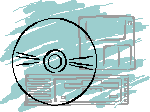The Need to Practice Safe Surfing

The
Intended and Limited Thrust of This Document
First of all, it is unlikely that computer enthusiasts and advanced users
will learn something new here. This is mostly for the average user that is
satisfied with:
- Being able to turn the computer on
- Write letters
- Manage their finances
- Send an occasional greeting card
- Play hours of FreeCell or other games
- Send e·mailSurf the internet
- Etc.
This will by no means be exhaustive, nor will I attempt to get in over my
head and dig into the deep nitty-gritty of the issues involved here. This is to
serve as reasonably brief overview to inform users as to why they need to take a
few simple steps to protect themselves and their computers in cyberspace. It has
been designed so that the average reader can complete it in about fifteen
minutes.
The information supplied below is for anyone that accesses the World Wide Web
(or simply the internet). This is true whether you gain access through a simple
dial-up network via a modem connection, a cable connection, a wireless
connection, or through a high speed DSL network.
The Real World Versus
Cyberspace
With the advent and phenomenal growth of the internet come the good and the
bad. There is obviously a wealth of beneficial information available to those
needing it. Unfortunately, the internet is not passive and static as many
libraries are. In other words, the library does not knock on your door, phone
you, or send you mail to offer you samples of new materials. Most libraries open
up each day and wait for you to walk in and ‘browse’ their shelves. Those
offering information on the internet are not always so congenial and benevolent.
Likewise, the regular postal services offered around the world serves as a
conduit by which people and companies can communicate and exchange information.
Though it may vary from country to country, most have some regulations on what
can be sent via the mail system. For instance, there are strict regulations on
sending dangerous items and material through the mail. I am not sure, but I
suspect that they may even be some regulations about sending items through the
mail with profanity and obscenities being readily viewable on the outside.
Unfortunately, this is not the case with e·mail.
Lastly, when a person visits the library, the local post office, store, or
any business that offers a service or product, no one follows you home and tries
to get into your files and any safe you may have. That is not always the case
with visiting websites.
As I believe most will see, those that venture in the world of ‘cyberspace’ (i.e.,
the World Wide Web or Internet) can be assaulted in various ways.
The Spurious and Stubborn
Spammers
Anyone that has ever gone to the local post office or their local street-side
mailbox to pick up the mail has found unwanted and unsolicited mail. We usually
mutter something quietly to express our disgust as we simply toss it into the
nearest trashcan. However, if you have had an e·mail account very long, you have
likely expressed some stronger emotions when you check your inbox for new
messages. It takes a considerable amount of time to scan the subject lines of
tens to hundreds of Stupid
Persistent
and Aggravating e-Mail
(my own explanation for the acronym) that finds its way into your box. You must
scan each one, or you could delete valid e·mails to you. In addition, such
sometimes bring hidden and destructive programs (viruses) onto your computer
that can wreak havoc with your system and nerves. I have said more about viruses
and other e·mail dangers below.
Do you ever wander how these nuts got your e·mail address? There are numerous
ways, including paying someone for yours. I recent bounced a spam note in which
the subject line advertised getting $10.00 US for each e·mail address supplied!
As hard as it may be to believe, you could be getting e·mail solicitations
from obscene vendors and other scrupulous dealers because your loved
ones, your friends, your pastor or Sunday school teacher, fellow
students, or those with whom you work gave the spammers you’re your e·mail
address! Furthermore, you have likely provided e·mail addresses of some in your
address book to spammers.
Now, stop shaking your head at me like that. I did not mean that they or you
have done so purposefully. I mean that most people do it without knowing it. One
of the easiest and common ways for this to happen is for someone or you to send
an e·mail to many people at the same time; and in doing so all e·mail addresses
are placed in the “TO:” box or section instead of the “Recipient list concealed”
or “Bcc:” (blind carbon copy) box. I have already posted an article that deals
with this issue in depth.
Click here to read go to it if
you desire.
Unfortunately, once you get on the e·mail lists of spammers, it is doomed to
receive spam until Jesus comes, which I hope is very soon. But, just in case He
does not come as soon as Walter Robinson II desires, there is something all can
do to stop the spammers before their spam finds its way to your
computer’s hard drive. Now stop frowning. It is not nearly as hard as you may
think.
Click here to learn how to make most spammers eat
their own spam.
Pugnacious
‘Pop-ups’
Those browsing the web may be searching for innocuous information or
materials or products, but suddenly have a page appear either in front or behind
of your selected page to view. This is called a ‘pop-up.’ Sometimes a popup may
simply ask for feedback about the website you are visiting, promote a harmless
and even beneficial product, solicit your participations in a poll, or even ask
you to take a survey.
Usually this is at the most annoying. However, sometimes it can be really
annoying, especially when a page insists on popping up every time you
leave or go to another page on that site. I usually back out of such sites right
away, regardless of what they have to offer.
Such reminds me of the high pressure pugnacious salesman that refuses to take
‘no’ for an answer. Sometimes webmasters of such websites will even dare to
‘trap’ your browser and not allow you back out, unless you close your browser or
use your browser’s ‘BACK’ button drop down menu (available under the little down
arrow just to the right of the word ‘back’) to skip back and over to a previous
website. Once I get away from such a site, I make a note to never visit it
again. But again, this mostly annoying at the most.
However, sometimes visitors are assaulted and horrified when a page pops up
in which pornography or some other offensive material is offered with free
‘samples’ being displayed. This is an assault! It is even more deplorable
when children are exposed to such materials.
The good news is that there are ways to fight pop ups.
Click here to
learn how to know down the pop-ups.
Hawking Hackers
As mentioned above, when you are walking around (physically browsing the real
world), you normally do not need to concern yourself with someone following you
home, which is called ‘stalking.’ Nor do you worry with such trying to break in
or get into your personal information and do harm to your possessions. Yet, when
you visit websites, malicious webmasters, or those who “hack” into (virtual
breaking and entering) normally harmless websites, sometime install code that
can do a number of bad things to you if you are not protected.
Hackers do not necessarily have to wait for you to visit a website with
invasive code to break into your system. The simple truth and horror is that any
time you are connected to the internet, you could become a target. All a hacker
has to do is scan your internet provider’s servers for active IP addresses (your
computer’s virtual address on the internet), and then look for an opening to get
into your computer system. If you are not properly protected they can eventually
get inside and do a number of things--things that are all bad.
Among other things, they can simply snoop around on your hard drive and
access your files. This means they can find financial and other personal
information. They can also install hidden programs that can destroy your data,
or even send out e·mails those in your e·mail address book that contain more self
replicating viruses. In a word, it is nothing but bad if they get into
your system. Yet, there are simple things you can do to protect yourself.
Click here to see my recommendations on what you can
do to protect yourself from hackers.
Virulent Viruses, Cybernetic Trojan Horses, Adware, Bannerware, and Spyware
Lastly, but not exhaustively, there are malicious programs that find their
way onto the hard drives of average and unsuspecting computer users. There are
many avenues they travel to get onto your personal system.
Sometimes harmful programs get onto your computer by piggy-backing on the
e·mails you receive. Though they may come in as attachments, they can also be
embedded in the code of HTML type e·mails and other ways. Contrary to most
popular belief, it is not always necessary to open an infected e·mail. I once
activated a virus in an e·mail when I simply passed my mouse cursor over it to
highlight it to delete it! That is all it took.
(Click
here to see the article I wrote about it.) It was only then that I
realized that I needed to get educated in order to protect myself. However,
e·mail is not the only way for your computer to pick up a cyber germ.
The world of computers and cyberspace is inhabited by millions (if not
billions by now) of people. There are those who are mostly users, but there are
smaller groups that make up software suppliers and developers. Many of the
latter (I hope it is most) are nice people that merely seek to provide users
with beneficial products and information. An increasing number of them provide
products that will only cost you the connect time to download them. However,
some are advertised as free, but in reality there is an invisible string
attached.
Some free programs pay for themselves by using your computer as cyber
bulletin board. Such software is called ‘ad-ware’ or ‘banner-ware.’ They either
display ads (or banners) in the software’s window, or they launch your browser
and direct it to various websites that offer products for money. Some product
may be something you can take or leave, others can be down right repugnant and
offensive. Though it is definitely annoying, it is probably the most harmless of
this type of software.
However, some ad-ware or banner-ware may dare to change your browser’s
homepage to one of their choosing, which is a definite no no. Moreover, some of
this type of software may install hidden programs that run in the background
without your knowledge or permission. The background programs will then wait
until you establish an internet connection, and then either gather new ads or
banners from a server someplace in cyberspace. This is unscrupulous at best.
However there is also a subculture within the elite community of software
developers and suppliers that create software that too often does something more
that is advertised. Some so-called ‘free’ software may install stealth (or
hidden programs) that will gather information from personal and system files on
your own hard drive, and then transmit it to someone else’s computer somewhere
in the world--again without you knowing about it! If you are like me, my
personal files and data are very valuable to me. Thus, this type of program
seeks to steal something from me that is priceless. This software is called ‘spyware.’
When I run into any of this type of behavior I reject all products advertised
and all individuals and companies associated with those that develop or supply
such. In my opinion, their practices are unscrupulous, and such people will
likely sell unscrupulous products.
Like the other categories above, there is something you can do to protect
yourself.
Click to see what you can do
to protect yourself against viruses and other harmful programs.

Visitors have viewed this page since
April 1, 2004
(NOTE: All preexisting page counters were
reset to
zero when my server crashed in March of 2004.
It took until April 1, 2004 to get them working again.)
Copyright © 2000 Last Chance Ministries. All rights reserved.
Revised: June 13, 2006.
|












